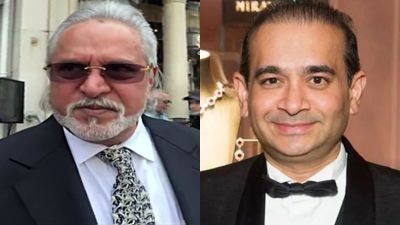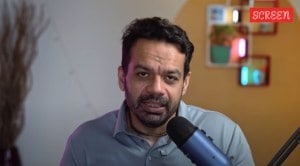Stay updated with the latest - Click here to follow us on Instagram
Valuable right jeopardised,’ HC asks court to re-adjudicate plea against MCOCA charges
Alleged Indian Mujahideen member Mubin Kadar Shaikh argues that the special court did not hear the accused before rejecting their petition as ‘infructuous’, ‘in violation of the provisions of CrPC Sections 227 and 228’.
 The police relied on dying declarations of the couple and two other employees who were key eye witnesses to the incident.
The police relied on dying declarations of the couple and two other employees who were key eye witnesses to the incident.
The Bombay High Court has directed a special court to re-adjudicate an application filed by alleged Indian Mujahideen member Mubin Kadar Shaikh challenging the invocation of charges under the Maharashtra Control of Organised Crime Act (MCOCA) against him and others.
The prosecution claimed that an email was sent to media organisations on August 23, 2008, claiming responsibility for the Ahmedabad serial bomb blasts that had taken place on July 26 in the same year.
Shaikh and over 20 others arrested in 2008-2009 in the case were charged with criminal conspiracy and waging a war against the nation under sections of the Indian Penal Code, MCOCA, Unlawful Activities (Prevention) Act, Arms Act and the Explosive Act.
On Wednesday, a bench of Justices Sadhana S Jadhav and Milind N Jadhav passed the order on Shaikh’s appeal against a special court’s April 24, 2019, ruling that rejected as “infructuous” a petition against the invocation of the stringent Maharashtra law.
Shaikh, through his lawyer Mubin Solkar, claimed that while their petition was pending before it, the special court framed charges against him and other accused on December 10, 2013, making their petition redundant.
Shaikh stated in the high court that the special court did not hear the accused on their contention against the MCOCA charges, “in violation of the provisions of Sections 227 and 228 of the Code of Criminal Procedure”. However, special public prosecutor AM Chimalkar argued that the accused had consented to the framing of the charges.
The high court held that appellant’s plea for quashing the MCOCA charges “ought to have been decided by the trial court before proceeding to frame the charges”. “Once the court had taken cognisance of the pending application and also framed the question calling upon the prosecution to show cause as to why the charges under MCOCA should not be dropped, it was not open to the trial court to have disposed of the application as ‘not surviving’,” said the bench.
“The same…could not have been disposed of as ‘not surviving’ subsequent to the framing of charges when a valuable right is accrued upon the accused under the provisions of Section 216 of the Criminal Procedure Code. As per the said provision of the CrPC, the court is empowered to add or alter a charge at any time before the judgment is pronounced and even after the charges have been framed,” it added. “Since the application was admittedly pending and remained unheard as specifically noted by the trial court in the impugned order, we are of the opinion that appellant’s valuable right is jeopardised,” the court held.
The high court asked the accused to file in the special court a fresh application against the MCOCA charges within a month, and asked the prosecution to file an affidavit in reply within four weeks thereafter. And the special court is directed to decide the plea within sixteen weeks thereafter.
In February, a special court handed death sentences to 38 of 49 convicts in connection with the Ahmedabad blasts, which killed 56 people and injured over 200. The remaining 11 were awarded life terms.







